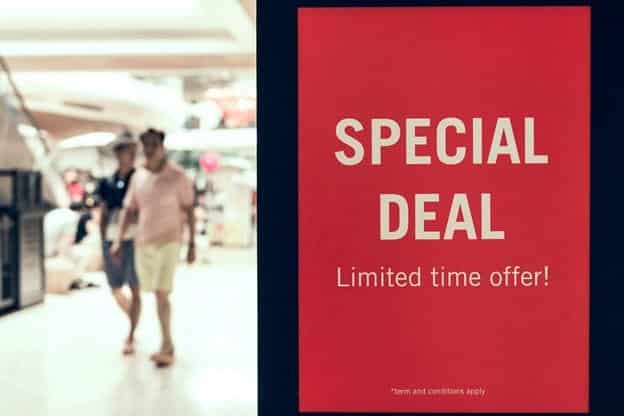What is Behavioral Economics? A Brief Explanation
Updated: June 19, 2024
Published: June 10, 2021

If you have a curiosity for multiple disciplines, like psychology, sociology, economics, and cultural studies, then you might be interested in learning more about behavioral economics.
Behavioral economics covers many different facets of psychology and economy and looks at society for answers on understanding how we make economic choices.
While this may seem like a very complex topic, it doesn’t have to be too tricky to grasp. Here, we’ll go over a basic introduction to behavioral economics so that you can have a better understanding of the concept.

Source: Unsplash
What is Behavioral Economics?
The role of behavioral economics is to look at the effects of cultural, social, psychological, and emotional factors in the decision-making process and how it affects economic theory. Behavioral economics pulls a lot of theories and methodologies from other social sciences, like neuroscience, psychology, and of course, economics.
Behavioral scientists are interested in studying the way in which public choice is persuaded using different techniques, as well as how stock markets are made.
Behavioral scientists will look at the decisions of both individuals and corporations to reach different conclusions.
Understanding Behavioral Economics
In behavioral economics, experts try to use traditional psychology to understand why people sometimes deviate from what is considered a usual action when it comes to making decisions.
In traditional economics, it’s assumed that people have people always make the most rational decision — but we know that this isn’t always true.
According to the economic rational choice theory, we assume that humans will make the choice that is best for them when presented with multiple options. However, according to behavioral economics, people sometimes make irrational choices, therefore it uses psychology and economics to understand why this behavior deviates from rational choice theory models.
When it comes to issues that concern humans financially, such as deciding how much to save for retirement, how much to spend on school, or even what kind of lifestyle to maintain, many people make decisions that aren’t rational. Behavioral economics tries to explain that this discrepancy between a rational and irrational decision is because humans, by nature, are often distracted and therefore don’t always make the best decisions for themselves.
To put it in layman’s terms, how many times have you decided to eat something you know was bad for you when you were trying to eat healthily? You know that donut isn’t good for you and won’t help you with your health goals, yet you sometimes make the decision to eat it anyways.
Humans are clouded by emotions, social influence, and cognitive bias, which is why we often make decisions like these.
How is Behavioral Economics Applied?

Source: Unsplash
One of the main ways behavioral economics is applied is through heuristics. Heuristics is when decisions are made based on things like a rule of thumb or trial and error. When someone makes a decision that leads to a mistake, it can cause cognitive bias.
Another field in which behavioral economics is applied is behavioral finance. This field tries to explain why investors make certain rash decisions when they trade in markets.
Aside from these two applications, behavioral economics is actually used every day by companies in their marketing and pricing techniques with the purpose of increasing sales and convincing consumers to make a purchase.
A good example of this is how companies use the term “free” in their advertisements. A business might advertise a deal for “buy one get one free,” which makes you, the consumer, believe you’re getting a really good deal. However, businesses can easily say “buy two and get 50% off.” Both sales will lead to the same savings, but the word “free” reinforces a certain behavior and therefore consumers react to it better.
There are plenty of ways we as consumers are exposed to behavior economics tactics in marketing. Loss aversion and exclusivity are marketing techniques that use behavioral economics to entice consumers to make a purchase.
For example, when you see a limited-time deal or an exclusive product that’s only available for a set amount of time, you feel a sense of urgency to take advantage of the deal. The decision you make here isn’t always rational, and companies have learned to capitalize on that.
Traditional Economics vs Behavioral Economics
In traditional economics, we assume that people make decisions based on the fact that they have all the relevant information and can consider their options rationally. But in reality, when it comes to choice, we’re often bombarded by things like our own uncertainty, risk, or even deadlines, all of which play a part in the decision-making process.
Behavioral economics, on the other hand, helps offer an understanding of how people can make decisions in the face of these external factors.
Why is Behavioral Economics Important?
Like any form of psychology , behavioral economics is useful for us to know since it helps us understand ourselves, our society, and others better. Behavioral economics is important since it provides us with an awareness of what motivates our behavior, especially when it comes to financial decisions we make that can affect our lives a great deal over time.
Just by thinking about these behaviors and recognizing patterns in how we make irrational decisions, whether it’s eating that donut when on a diet or purchasing something we don’t need, we’re able to have a better impact on our own futures by learning not to surrender to impulse.
Wrapping Up
Behavioral economics is something that we may not notice in our day-to-day lives, but really impacts the way we make decisions that affect our lives, health, and financial security. By learning more about behavioral economics and how each of us makes decisions, we can develop better habits that will allow us to accomplish our long-term goals.
At University of the People (UoPeople), we offer a bachelor’s degree in Health Sciences, where you can take courses related to psychology, health, and behavior. This will give you a more well-rounded understanding of health in general so you’ll be able to notice behavioral economic patterns in this field. Best of all? All our degrees are done via remote learning and are tuition-free.
